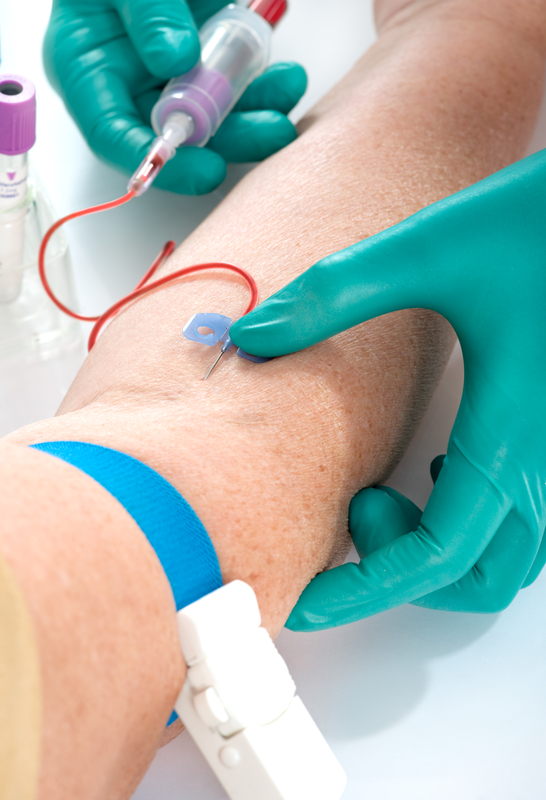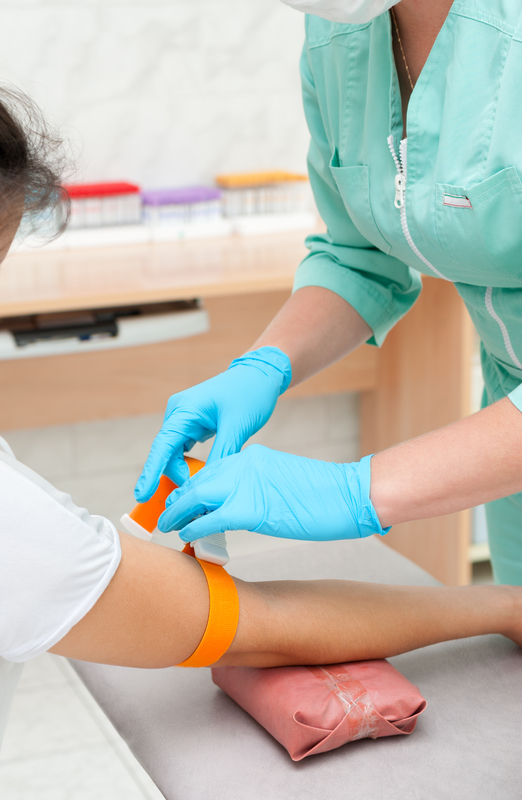Thinking about attending phlebotomist school? In the realm of healthcare, phlebotomists play a vital role as the frontline professionals responsible for drawing blood samples from patients for various medical tests and procedures. However, beyond their technical skills, a good phlebotomist possesses unique qualities that contribute to their effectiveness in this crucial role.
From empathy and attention to detail to technical proficiency and adaptability, the traits of a good phlebotomist extend far beyond their ability to perform venipuncture. In this blog, we’ll explore the key characteristics that define a competent and compassionate phlebotomist, shedding light on the qualities that make them indispensable healthcare team members. One such quality is problem-solving ability, which is often tested in the dynamic environment of a healthcare setting.
Communication Skills
Communication skills are paramount for phlebotomists, as they interact directly with patients throughout the blood collection process. Clear and effective communication helps them explain procedures to patients, ensuring they understand what to expect and alleviating any fears or concerns they may have about the blood draw.
Phlebotomists often encounter nervous or anxious individuals who may be apprehensive about needles or medical procedures. In such situations, the ability to communicate with empathy and compassion is not just a skill, but a lifeline. It can make a significant difference in putting patients at ease, building trust, and ultimately, making the blood draw process less daunting.

Phlebotomists must accurately relay important information to healthcare providers, such as identifying patient allergies, specifying test orders, or noting any complications during the blood draw. Strong communication skills not only facilitate smooth interactions with patients but also contribute to seamless collaboration within the healthcare team, ultimately enhancing the quality of patient care.
CONTACT US TODAY

Attention to Detail
Attention to detail is critical for phlebotomists, as precision and accuracy are paramount in their line of work. From the moment patients present for a blood draw, phlebotomists must carefully verify their identity to ensure samples are correctly matched to the right individual.
This involves cross-referencing patient information, such as name, date of birth, and medical record number, with requisition forms or electronic records. Once the patient’s identity is confirmed, phlebotomists meticulously follow established protocols to collect blood samples, paying close attention to proper technique and safety procedures to avoid errors or contamination.
They are responsible for accurately labeling each blood sample with the patient’s information and the type of test ordered, adhering to strict labeling standards to prevent mix-ups or misinterpretations. By maintaining a keen eye for detail throughout the blood collection process, phlebotomists ensure the integrity and reliability of test results, contributing to the overall quality of patient care.
Empathy and Compassion
Empathy and compassion are indispensable qualities for phlebotomists, as they often interact with patients who may feel anxious, nervous, or apprehensive about the blood draw process. Demonstrating genuine empathy and understanding towards these individuals can help alleviate their fears and create a more supportive and reassuring environment.
Phlebotomists with strong interpersonal skills can effectively communicate with patients, actively listening to their concerns, addressing any questions or uncertainties, and providing encouragement and reassurance throughout the procedure. By acknowledging and validating patients’ emotions, phlebotomists can build trust and rapport, helping to ease their anxiety and make the blood draw experience more comfortable.

Showing compassion towards patients who may have had negative experiences with needles or medical procedures in the past can help foster a sense of safety and trust, encouraging them to feel more relaxed and cooperative during the blood collection process.
Overall, empathy and compassion are essential for ensuring patients’ emotional well-being and facilitating a positive and supportive healthcare experience.

Technical Proficiency
Technical proficiency is a cornerstone of a phlebotomist’s skill set, encompassing a thorough understanding of venipuncture techniques, equipment operation, and safety protocols. Mastery of venipuncture techniques involves precisely inserting a needle into a vein to collect blood samples, requiring both dexterity and precision to minimize patient discomfort and risk of injury.
Phlebotomists must be proficient in operating a variety of equipment, including blood collection tubes, vacutainers, and blood pressure cuffs, ensuring accurate and efficient sample collection. Furthermore, strict safety protocols are essential to prevent the transmission of infectious diseases and ensure the well-being of patients and healthcare workers.
This includes proper hand hygiene, use of personal protective equipment such as gloves and face masks, and disposal of biohazardous materials by established guidelines. By maintaining a high level of technical proficiency, phlebotomists can perform blood draws confidently, efficiently, and safely, contributing to the overall quality of patient care.
Problem-Solving Ability
Problem-solving ability is a crucial skill for phlebotomists, as they often encounter challenges during the blood collection process that require quick thinking and resourcefulness to overcome. One common issue phlebotomists face is locating and accessing veins in patients with difficult or fragile veins, making venipuncture challenging.
In such situations, they must employ various techniques, such as using warm compresses or gravity-assisted positioning, to improve vein visibility and accessibility. Additionally, they may need to adjust their approach or technique based on the patient’s anatomy and medical history to minimize discomfort and maximize success.

Phlebotomists may encounter equipment malfunctions or technical difficulties during blood draws, such as a faulty needle or a malfunctioning blood collection tube. In these cases, they must quickly assess the situation, troubleshoot the problem, and take appropriate action to rectify it, whether by replacing the equipment or seeking assistance from a supervisor or biomedical technician.
Phlebotomists may encounter unexpected patient reactions or emergencies, such as fainting or adverse reactions to the blood draw procedure. In these critical moments, their problem-solving ability is not just a skill, but a shield. By remaining calm, composed, and proactive in problem-solving, phlebotomists can ensure not just the success of the blood draw, but the safety and well-being of both patients and healthcare personnel.

Organizational Skills
Organizational skills are essential for phlebotomists to navigate the demands of their role efficiently and effectively in a fast-paced healthcare environment. Managing a busy workload requires careful planning, prioritization, and attention to detail to ensure that all tasks are completed accurately and on time.
They must effectively schedule appointments, coordinate with other healthcare professionals, and maintain a smooth flow of patients to minimize wait times and optimize efficiency.
Additionally, they must keep meticulous records of each blood draw, including patient information, test orders, and specimen collection details, to ensure accuracy and traceability throughout the testing process.
Success phlebotomists demonstrate the ability to adapt to changing priorities and handle multiple tasks simultaneously without compromising quality or safety. This may involve juggling various responsibilities, such as preparing blood collection materials, assisting patients, and documenting procedures while remaining focused and organized.
By staying organized and proactive in managing their workload, phlebotomists can streamline operations, minimize errors, and provide high-quality care to patients in a timely and efficient manner. This is why strong organizational skills are not just a bonus, but an essential part of a phlebotomist’s toolkit. They are key to maintaining smooth and efficient blood collection processes, contributing to positive patient experiences and overall healthcare outcomes.
Phlebotomist School: We Provide The Framework For Success
At NuCourse Institute, we are committed to providing aspiring phlebotomists with the comprehensive framework they need to succeed in their careers. Our phlebotomist school offers a rigorous and immersive educational experience that covers all aspects of phlebotomy practice, from venipuncture techniques to safety protocols and patient care.
With expert instructors and state-of-the-art facilities, we provide hands-on training that allows students to develop the technical skills and confidence required to excel in their profession. Our flexible and adaptive curriculum will enable students to learn independently and tailor their education to their needs and goals.
Whether you’re embarking on a new career path or seeking to advance your skills in the healthcare field, NuCourse Institute provides the supportive environment and resources you need to achieve your aspirations in phlebotomy.
